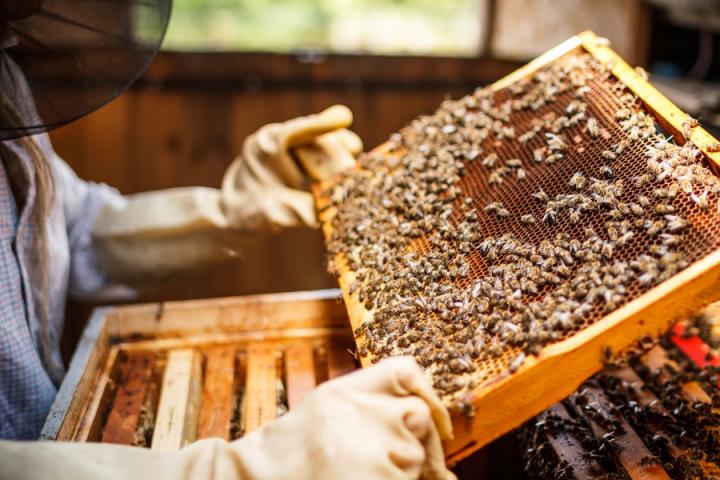Easter Bush Campus Apiary
Pollination by bees contributes substantially to global food production, any decline in the bee populations is therefore of great concern. The Easter Bush Apiary gives members of staff and students the ability to manage a colony of honey bees and contribute to this vital part of the planet's biodiversity.

The decline in bee populations is of great concern because pollination plays a critical role in sustaining much of the biodiversity on earth. It plays an essential role in maintaining the integrity and resilience of most terrestrial ecosystems, and the services that these ecosystems provide. It is estimated that a third of the food we eat is pollinated by bees and in much of the world the cornerstone of agricultural pollination is the managed honeybee (Apis mellifera).
By giving people working or studying on Campus the opportunity to manage a colony of honey bees, it will enhance their working day and have positive effects on their health and well-being. The practice of beekeeping helps to develop a greater concern for the environment as the new beekeeper takes an interest in the three miles radius the bees forage around each hive.
Members of staff and students will have the opportunity to manage the Easter Bush Apiary. In order to be able to do this, they will first need to attend a beginner’s course in beekeeping that is recognized by the Scottish Beekeeping Association. A three day intensive course is to be held in May each year for 18 attendees.
Beekeeping records will be kept for all colonies. There will therefore be extensive records of who is involved with the project, whether the project has been successful in encouraging staff/students to keep bees on the Campus and whether the management of bee colonies has been successful.
If you wish to participate in this project, then please contact Mark Barnett.


